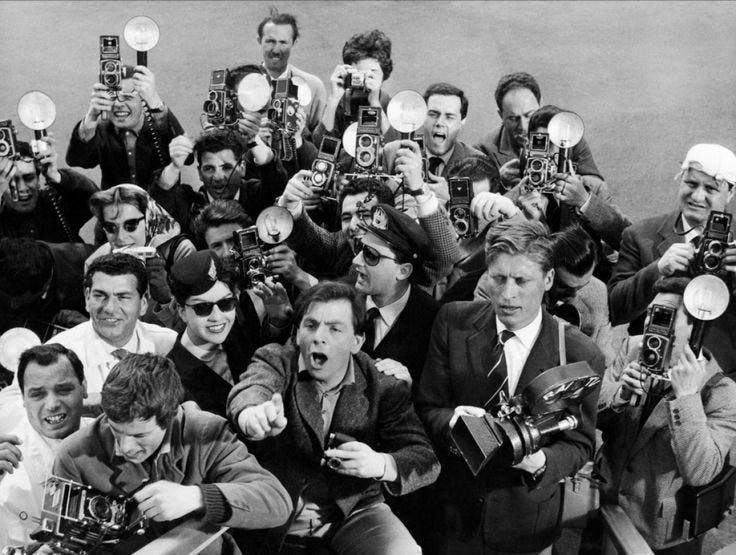EACH PERSON IS A DIFFERENT MIRROR
There’s a war of ideas. If wise people’s thoughts don't spread, other’s thoughts will. And the people who want their ideas to spread the most are rarely the ones who should be spreading ideas.

Capital Thinking • Issue #1176 • View Online
Living in public, when done sincerely, is worse for you, but better for other people.
Let me back up.
"I really would like to have the film rights to this book," Robert Redford said to Robert Pirsig, author of Zen And The Art of Motorcycle Maintenance.
"You've got them," Robert Pirsig replied. "I wouldn't have gotten this involved if I hadn't intended to give it to you." As a great review puts it: “Two famous guys talking in a famous city about making a famous book into a famous Hollywood movie.”
On Celebrity
Why living in public is worse for you, but better for others:
Robert Pirsig spends a whole chapter in his book, Lila, talking about the celebrity phenomenon.
Why do we love to catapult people suddenly into celebrity, lavish praise and wealth upon them, and then, at the moment they at last become convinced of their worth, try to destroy them?
Pirsig claims that this is directly related to the classic Native American-European conflict of values. Quoting Pirsig:
“The root of the conflict is that you’re supposed to be socially superior like a European and socially equal like a Native American at the same time. It doesn’t matter that these goals are contradictory.
So what you get is this tension, this business executives’ tension, where you’re the most relaxed, smiling, easy-going guy in the world—who is also absolutely killing himself to beat the competition and get ahead.
Everybody wants their children to be valedictorians, but nobody is supposed to be better than anybody else. It’s bizarre.
They love you for being what they want to be but they hate you for being what they’re not. There’s always this two-faced relationship with celebrity and you never know which face will appear next.
The old Indians knew how to handle it. They just got rid of anything anybody wanted. They didn’t own property, they dressed in rags, some of them. They kept it down, laid low, and let the egalitarians and sycophants and assassins all look on them at worthless. That way they got a lot accomplished without all the celebrity grief.”
Celebrity.
This was the tension Pirsig was having as he was meeting with Robert Redford. He had already been weirded out by his own mini-celebrity.
Fame and fortune don’t bring you closer to other people, he realized, they bring you further away.
In fact, Pirsig writes, they split you into two people, creating a sort of zen hell – a hall of mirrors where everyone has different opinions of you and you have to get more and more supportive reflections just to stay satisfied. The mirrors take over your life and soon you don’t know who you are.
Each person you come to, Pirsig writes, is a different mirror. And since you’re another person like them, maybe you’re just another mirror too, and there’s no way of ever knowing whether your own view of yourself is just another distortion.
Maybe all you ever see is reflections. Maybe mirrors are all you ever get. First the mirrors of your parents, then friends and teachers, then bosses and officials, priests and ministers, and maybe writers and painters too. That's their job, holding up mirrors.
Then they take away the mirrors. That’s when you go crazy. Kanye West. Miley Cyrus. Britney Spears. They go off the rails because they need the dopamine hit of celebrity.

